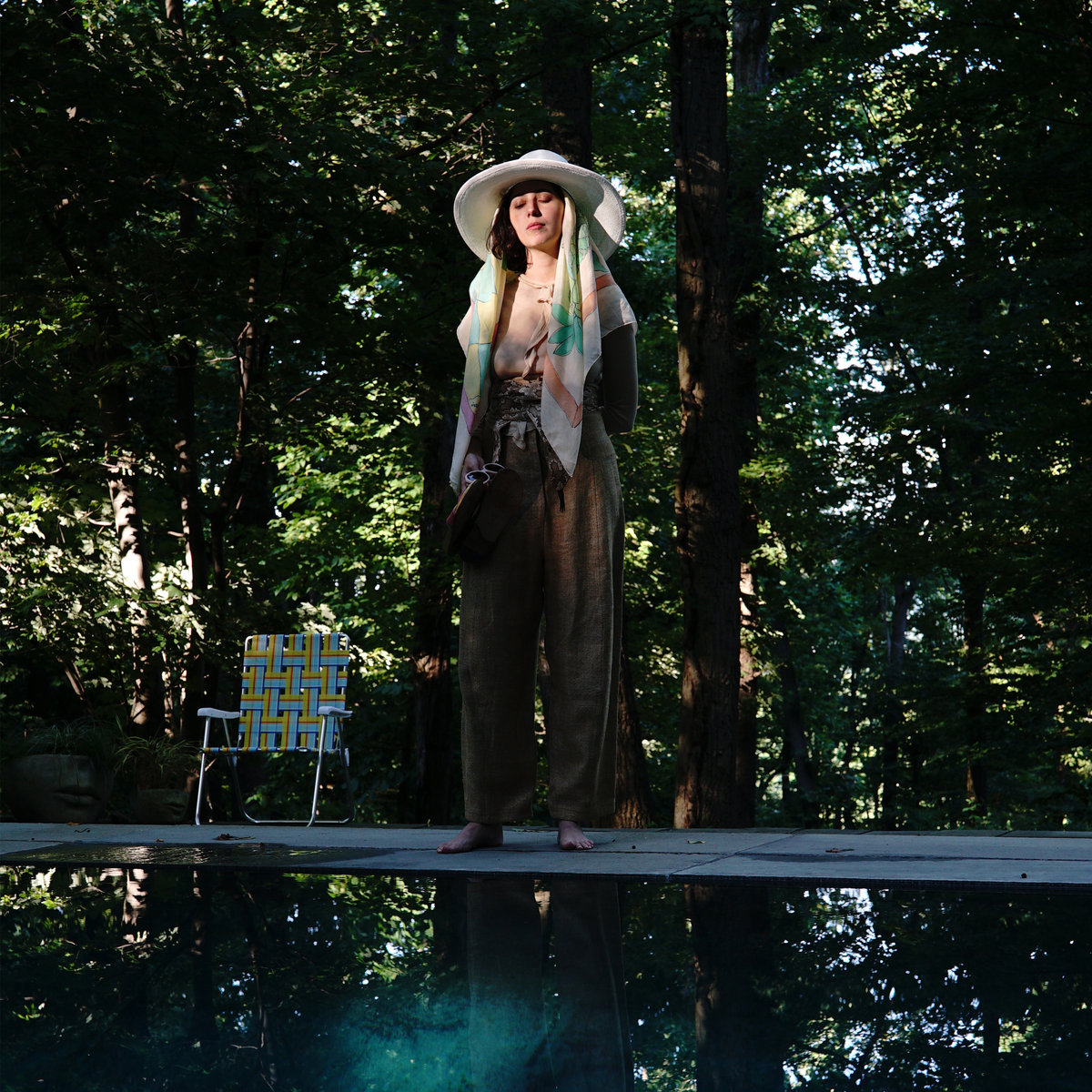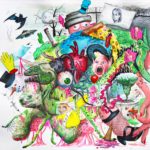“They say wisdom grows with every silver hair.” (‘Un Cabello Gris’). There’s a point in life where one suddenly thinks about their own mortality. For Ecuadorian Maria Usbeck, like many other humans, it was when she spotted her first grey hairs. This realisation that you’re starting to dramatically age can be viewed in two ways: with sadness or with humour. Envejeciendo, the second release from the Ecuador-born Brooklyn-based musician, translates in Spanish as “getting old”, and over the course of its short album (just the 8 tracks) it effectively analyses various aspects of the aging experience with both dread and a tongue in cheek perspective. Like her multicultural debut Amparo, her insights are gathered from various sources: from Japanese culture, to an aging New Zealander and her own late grandmother.
Envejeciendo regularly switches from her native Spanish to her learnt English within the same track. Opener ‘Adidos A Mi Memoria’ (Goodbye to My Memory) is bilingual and features the worrying lines “every day is a new day, I can’t remember what I did yesterday”. Maria Usbeck has recently watched her grandfather experience elements of Alzhemier’s disease and the song tackles one of the worst parts of aging. It introduces the intriguing electronica sound Envejeciendo; disjointed, experimental synth-future-pop compositions with manipulated vocals and sound clips.
‘Un Cabello Gris’ – which sounds like a combination of the mystical and nocturnal ambience of Little Dragon with the quirky harmony of Stealing Sheep – recalls the vital concept-birthing conversation in which her friend pointed out Usbeck’s grey hairs: “I see something in your hair, I think it’s dead / Is this something that you knew that grew?” ‘Amor Anciano’ – a surprising bouncy and happy track reminiscent of a child-friendly educational programme – actually features a soundbite of a conversation by Maria Usbeck’s grandmother in which she reminisces about the romance in her life and how it could have gone in a different direction. She also sings about an elderly man from New Zealand whom she met that also confessed about his lost loves.
The album’s closer ‘Nostalgia’ is a soothing, echoey and hypnotic late night-dance track that addresses the unavoidable moment when you start to lose touch with what’s culturally popular as you get older.”No me gusta, no sé por qué/Será que es nostalgia/Tal vez es la vejez” (“I don’t like it, I don’t know why. It will be nostalgia. Maybe it’s old age.”) Futuristic and squelchy ‘The Machine’ is similar in its ignorance but rather than culture, it’s the latest machines that are hard to comprehend. The track effectively grows more disorientating as the person’s query of “How does this machine work?” is overtaken by the robotic voices of “does not compute” and the reading of a Wikipedia page by a virtual assistant such as Siri or Alexa.
However, the meditative ‘Retirement Home’ and the Oriental-flavoured downtempo track ‘Secrets In Japan’ praise the idea of old age with the former imagining an old folks facility as a place of blissful happiness, almost like a persuasive advertisement for a suspiciously heavenly place. With “recreational facilities, they all here for us. And at the weekends and evenings we have extra fun.” An instructor also seems to be teaching the residents a form of yoga in the song too. Furthermore ‘Secrets In Japan’ acts as a guide – kind of like Baz Luhrmann’s ‘Everybody’s Free To Wear Sunscreen’ – on how to live longer as learnt from the country with the highest average life expectancy. They seem like answers to the question How do you do it? – “good air”, “good food.” and “I don’t know” are some of the many answers.
Musically Envejeciendo is very different from Maria Usbeck’s debut Amparo, which had a large of array of percussion instruments and exotic compositions to reflect her Ecuadorian background and world travels. It may not be as enjoyable or exciting as a listening or sing-along experience but its concept is stronger, more alluring and more relatable. The album’s lack of time period means that Usbeck and others can enjoy the album’s aging messages even if they reach the grand old age of eighty.




